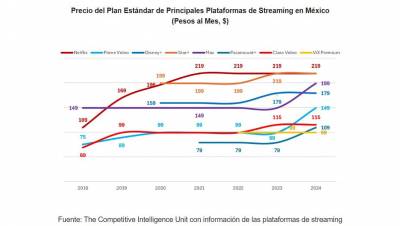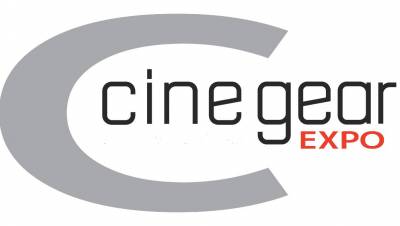Int - Café del centro – day
It's very early in the morning of any given day. The sun reflects on the tiles of the place and the rays it projects do some damage to the retina. With respect but a lot of uncertainty, the guests sit at the table and timidly ask the manager for a cup of coffee. One of them insists on black coffee but asks in another cup for some milk. He himself will serve it to his liking. The others ask for black coffee. Nothing else.
Sharing a cup of coffee in a small downtown spot can be the first step in building a great story that can have life on TV. Thus began our talk with Mauricio Miranda and Mauricio Navas, renowned writers of librettos for TV.
TV&V: What is called a good idea in t.v.?
M&M: A good idea should have dramatic possibilities. That is, it must catch the viewer and that he identifies with the person to whom that fact is happening. An idea is an event, it is the drama, it arises from a conflict. It is important that the idea can be developed within a broader framework, that they are not just two characters loose on an island but that it speaks of more common themes to the audience you want to reach.
Basically, that the idea is powerful, that when it is seen, it is seen far away, that it does not end soon, that it causes passion. The screenwriter must literally die of desire to write it, that is fundamental, that he bombards his head, that the idea comes back and forth and comes back, as if knocking on the door and saying: "what do we do?".
TV&V: How do you get a good idea for T.V. and how do you develop?
M&M: How it is achieved is the most difficult thing because it is something that arises. When searched by force, it hardly has the necessary consistency. You have to be willing, alert to the moment it appears. The idea itself is not achieved, it arrives, you do not have to think about it.
An important aspect is that you have the sensitivity to capture and capture it and, although everyone comes up with ideas, you are not always with this disposition and training to capture them.
The idea has a series of parameters and then comes the craft, that is, an idea arises spontaneously and through the craft of writing begins to take shape, to be modified, to be projected and to develop as a narrative proposal. Then, it is necessary to catalog it, look at what kind of program it serves, if it is a serial, a novel.
It is also true that there are people who have a specific training to be producing ideas constantly and this is part of a whole development of the creative act.
TV&V: Is there a structure for the development of ideas in t.v.?
M&M: Dialogue, in our case. With the T.V. there are many who are looking for "the little hen of the golden eggs". Those who try to find the perfect mechanism to make perfect ideas that produce a lot of money, and for this, there are even catalogs and manuals of all kinds that pursue this end.
In the case of Mauricio Navas and Mauricio Miranda it is not that the methodology is discarded, it sometimes serves for something, but what is true is that the ideas are given in a very childish game that raises a single question: What if?. It's like going back to childhood. As in children's games. And, how about it.... I was the cowboy and you Indians?
TV&V: Writing is an individual craft and you have done this task together.
M&M: It should be clarified that it is not written together, it is written individually, what happens is that it is written about the same thing.
The work system that we have achieved is based on the argumentation and the development of stories together, but the libretto is something totally individual, it is never written between two. There is a map drawn previously, which acts as a guide at the time of writing the scripts, this part is totally structural and cold, but from then on you are totally free. After that, it only counts to write down what everyone wants. It is possible that at some point some change may be presented, but everything is a concerted work.
Something that should be added is that in this case those who write strongly agree on the style: everyday dialogues, compact scenes where there is no waste of time, people speak as they speak in real life, in short; a number of common patterns that allow a libretto of one or the other to be staged at the same time without feeling barbaric jumps in style. It is because of that coincidence that our work together is possible.
TV&V: What narrative structures do you use to write a serial or a novel?
M&M: The training that in this case you have as writers, although it is very different, has one point in common: the films; from there the structure with which they began to work was taken, then there was a formation with everything that is melodrama and from there everything that interested in this case was taken. But, essentially what is sought is to tell stories where the image is more forceful and where people are left thinking. The idea is to overcome predictable things. In this case, a problem that is revealed with melodrama is precisely that, which is predictable and must be so or ceases to be melodrama. So what was tried was to modify the idea of melodrama, but without knowing for sure where it was sailing. As a result of that search, the story of mythical structure was reached, which is what has been used since Star Wars onwards with Hollywood films. In this structure the story is not divided into three acts, but into nine. In addition, we do not talk about four basic characters of melodrama but we talk about characters, eleven characters in total. Thus, each person goes through the different characters and in this way the story is constructed. In the case of melodrama, on the other hand, the bad guy is the bad guy always until the final chapter. In this structure that was found, the protagonist sometimes becomes bad and faces his evil until he defeats it, the bad guy comes at some point to have the option of doing a good thing, in this style the stories are normalized, the emotion of the stories is repeated.
Melodrama has not been abandoned because it is known that for t.v. sometimes you have to add a melodramatic character, what has been decided is to adopt the idea of Hitchcook that if you have a good bad you have a good movie, in that way, the other characters have been able to qualify much better.
TV&V: How do you maintain interest in each chapter of the story?
M&M: In this, the fact that the idea is powerful implies that, that it can be divided as a song where each bar is very good and all the songs together give a good record result.
We seek that each phrase of each scene has dramaturgy and forcefulness so that each scene turns each chapter into something very forceful. Likewise, that history has the result that is expected. Sometimes it happens that the story is unbalanced and you have to look for how to maintain interest in each of the small stories that are within the big story, but the ideal is that each scene of each chapter has an axis, a theme and a development.
Writing responsibly, embracing all this, is very painful; having to sit down to write 25 pages of intense letters and not to fill 25 pages of letters to obtain an economic retribution, is not an easy task. It is true that this is an adorable trade, but it is also true that it can become absolutely tortuous, constantly meets the writer who does not know what to say.
TV&V: How much does the rating influence the writing of a script?
M&M: Rating is definitely a variable that must be considered, but it is important to keep in mind that to protect what is written, the screenwriter must forget about this problem. The rating is addressed with the production company or the channel once the program is on the air and the problem is shared, but what we must strongly oppose is to write according to the rating, in that many librettists have fallen recently. In this case, experience has shown that the best stories are those that have been written without thinking for a single moment about this variable.
Now the rating has become more and more specialized. A few years ago it was known how many points a program had and already, it was a reasonably accurate measurement, but today with measurement systems like IBOPE, which say minute by minute how many people, of what economic level, of what social class, they are looking at the program, the work becomes absurd because the data is too specific.
The ideal is to dare to write what it feels like, catch those who are interested and be aware that there will be people who will not be interested at all in the story that is told.
TV&V: What has the work of writing the scripts together meant for the medium?
M&M: The medium in that sense goes much further than us, it is totally disseminated, it has industrialized that work until it reaches the point where everything is divided: there are escaletistas, dialoguists, and everything is a factory where someone gives an idea and this then passes into many hands, someone works the dialogues of women, another those of men, and so on, there are specialized people for everything. Our work is more difficult because it is only between two.
TV&V: Would any acting training be necessary for the conception of the characters?
M&M: Speaking in an absolutely utopian way, the person who is allowed to write for television should know everything, it would be ideal; now acting training is not essential, that is the next stage and it is a bit the work of the director. Yes, it is very key to be able to transmit to the actor what are the emotions that identify the character, but preferably there should be, in that case, a training in psychology, to establish a contact with the training in psychology that the actor has and thus you should not think about learning the same.
TV&V: How does the screenwriter feel when he sees on screen what he wrote?
M&M: When there is no communication with the director, people appear saying what was written, but they do not say what was really wanted, the words appear, but that other potential is wasted, which is the image, the psychological work, the pauses, the silences, everything that really reaches the viewer. It becomes very cold and is highly frustrating.
But there are also cases where the screenwriter can be surprised by the result and that is wonderful.
TV&V: What is the script for you?
M&M: It's the map, it's the navigation chart that makes the work common to everyone. When the script arrives at the production it is received by the director, the production manager, the actors, the sound engineer, etc., the script is the common letter that invokes the idea on which it was decided to work. It is a scientifically made proposal so that in the other stages it can be modified, and that is important because the script is not only what is written, it is also how it is done, how it is acted, etc. But essentially it's the skeleton and it's something that written doesn't work alone, it's made to be interpreted.
























Leave your comment